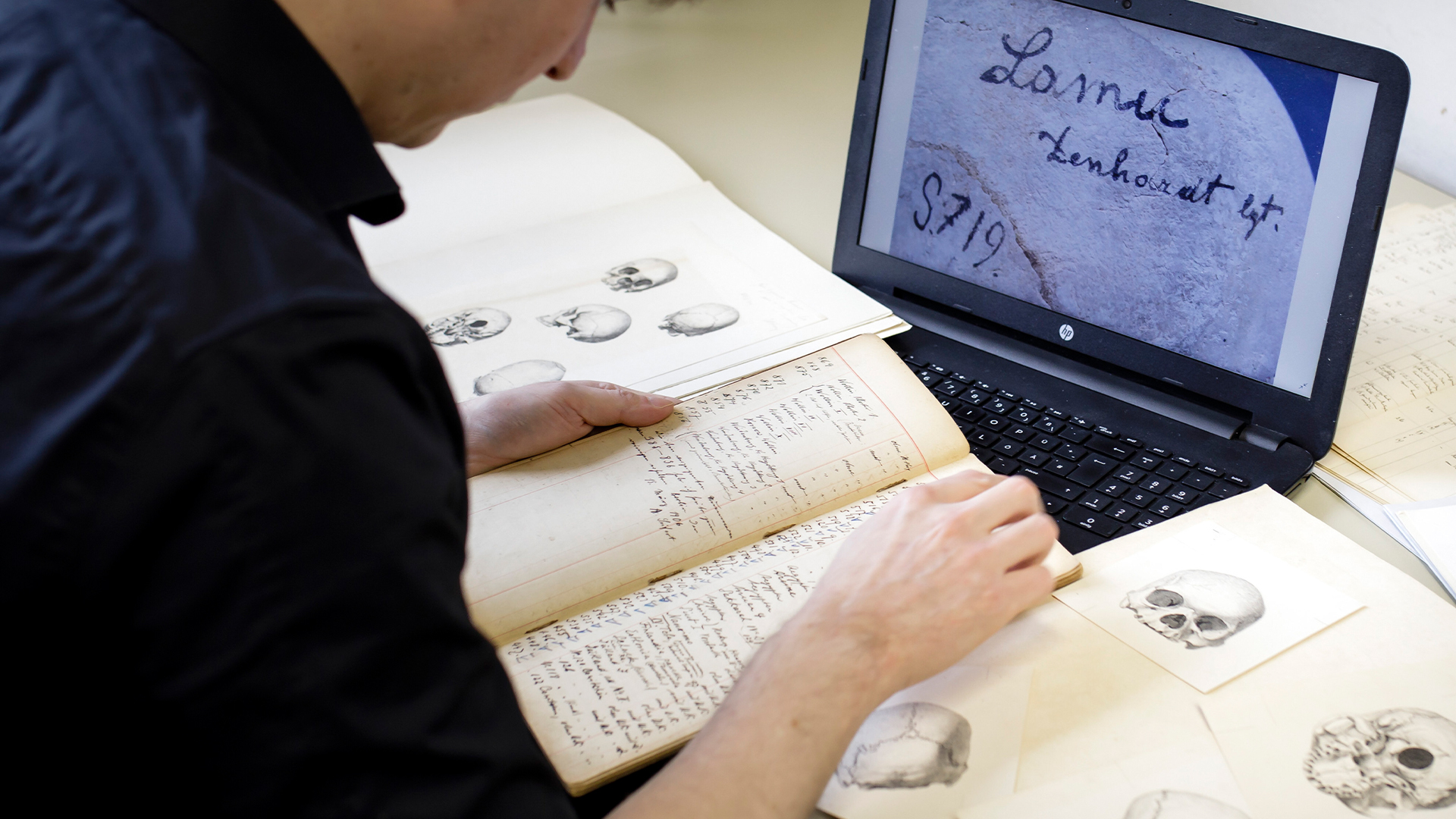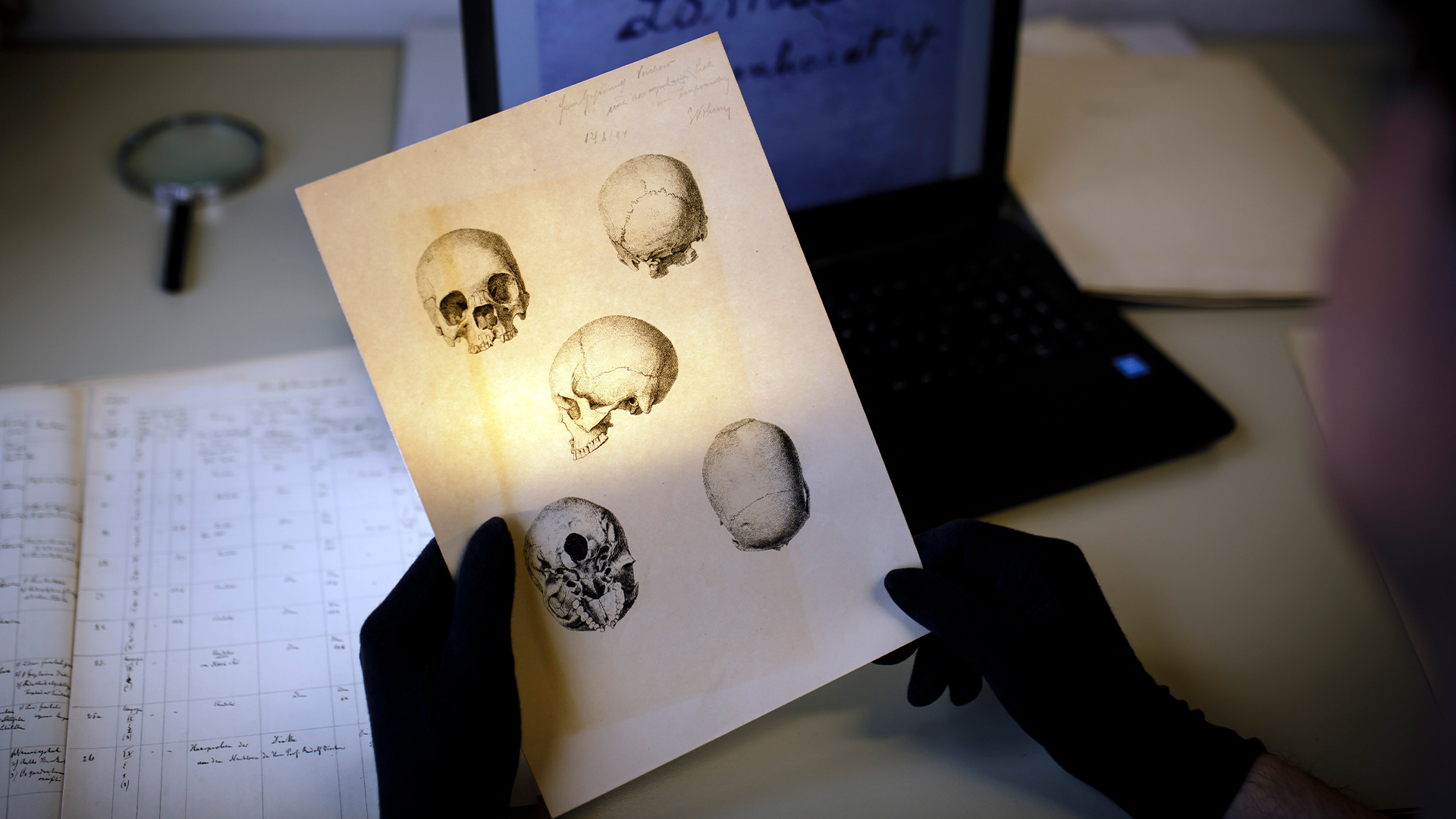Skulls stolen from Africa a century ago have been genetically linked with living people
Skulls housed in a German hospital's collection for a century were stolen from Africa during the colonial period. They have now been genetically matched with living relatives.

DNA from skulls that were stolen a century ago from Tanzania have been analyzed — and matched to living relatives in the country.
"The human bones in question were stolen during the colonial period in the former colony of German East Africa and stored in a disgraceful manner in German collections for decades," Joe Chialo, Berlin's senator for culture and social cohesion, said in a translated statement. (German East Africa included present-day Rwanda and Burundi, mainland Tanzania and part of Mozambique from 1891 to 1918, according to Britannica.)
These remains were part of about 7,700 skulls housed at Charité hospital in Berlin collected between 1890 and 1914. The Prussian Cultural Heritage Foundation, which oversees the Museum of Prehistory and Early History, took custody of the skulls in 2011.
The skulls were mainly taken from graves without consent, Bernhard Heeb, an archaeologist and curator at the Museum of Prehistory and Early History in Berlin, told Live Science. And many documents linked with the skulls were destroyed during World War II, he said. However, sometimes information was written in ink on the skulls themselves, he added.
Many of the skulls came from the collection of German doctor and anthropologist Felix von Luschan. Von Luschan, who assembled the collection to learn more about human origins and connections, has a complicated legacy; though his work was used by Nazis in their eugenics work, he himself disavowed any conception of inferior or superior races.
Some of the other skulls came from the collection of the former Charité Anatomical Institute, as well as from other smaller collections.
Related: Plantation slavery was invented on this tiny African island, according to archaeologists
Sign up for the Live Science daily newsletter now
Get the world’s most fascinating discoveries delivered straight to your inbox.

To gain scientific insights on the skulls, the researchers analyzed their DNA, as well as any written records or inscriptions, for about 1,100 of these stolen skulls.
Heeb and his colleagues found that 904 skulls came from what is now Rwanda, 197 were from Tanzania and 27 originated in Kenya. They could not identify the origins of seven of the skulls.
Analyzing the skulls proved difficult because of "the fragile written record and the poor storage conditions of the collection at the Charité, where many remains suffered damage," Heeb said.
Still, eight skulls were preserved well enough that a search for their descendants might prove successful. They compared DNA from the remains with that in saliva collected from 10 people in Tanzania that existing records suggested might be relatives of the people the skulls came from.
The researchers genetically linked three skulls to people alive today. They said it's the first time DNA analysis has unearthed clear relationships between the skulls at Charité with living people.
"Finding such a match is a small miracle," Hermann Parzinger, president of the Prussian Cultural Heritage Foundation, said in a statement.
The scientists found one skull probably came from the grandfather of a man who is still alive. This skull was marked with the title "Akida," a term for a German-appointed African official. This suggested it may have belonged to a high-ranking adviser to Mangi Meli, a chief of the Chagga people in what is now Tanzania who fought the German colonial occupation and was hanged in 1900, according to the Prussian Cultural Heritage Foundation. Two other skulls may also be related to Chagga people the researchers collected DNA from.
"Without modern analytical methods, such results would not be possible," Heeb said.
The scientists now seek to return these three skulls to their families in Tanzania. They cautioned that they have yet to conduct scientific research on and determine the origin of many of the skulls, so they "are therefore far from being able to make their way home," Heeb said. "The Prussian Cultural Heritage Foundation is working hard to restitute the entire collection of human remains."











